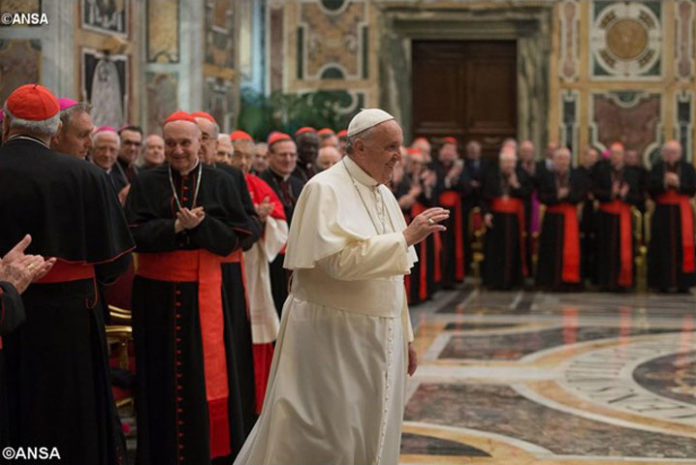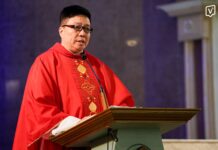THE HEAD of Filipino Dominicans has lauded Pope Francis for his proposed reforms in the Roman Curia, the body that governs the Catholic Church.
“The principles cited for reform are very important. I hope this gives a signal for the local Churches to take an immediate response to the issues highlighted by the Pope,” said Fr. Napoleon Sipalay, Jr., O.P., prior provincial of the Dominican Province of the Philippines.
In his year-end address to the Curia last Dec. 22, Pope Francis called on Catholic officials and lay ministers to accept and undergo reformation.
“Since the Curia is not an immobile bureaucratic apparatus, reform is first and foremost a sign of life, of a Church that advances on her pilgrim way, of a Church that is living and for this reason semper reformanda, in need of reform because she is alive,” the Holy Father said.
“Reform is first and foremost a sign of life. [It] is not an end unto itself, but rather a process of growth and above all of conversion,” he said.
The Pope laid down 12 guiding principles for reform, namely: individual responsibility, pastoral concern, missionary spirit, clear organization, improved functioning, modernization, sobriety, subsidiarity, synodality, Catholicity, gradualism and professionalism.
Sipalay, who is also the University vice chancellor, added that the reforms call for “authentic conversion.”
“It is not necessarily to be new persons but conversion in persons – change of mentality. It must be accompanied by permanent personal and structural process of conversion,” he said.
Toward salvation
Fr. Luis Supan, executive secretary of the Commission on Doctrine and Faith at the Catholic Bishop’s Conference of the Philippines (CBCP), said any reform in the Roman Curia proposed by the Pope “is always geared towards salus animarium (salvation of souls).”
“Improvements can always be made in the Roman curia – how to cut down costs, how to rapidly deliver services to the dioceses worldwide, how to promote the spread of the Gospel, and so on,” Supan said in an email to the Varsitarian.
Supan bared that the CBCP would itself look into possible reforms internally.
“The structure of the CBCP commissions is largely a reflection of the Roman Curia, with some variations to meet the needs of the Church in the Philippines,” he said.
Fr. Roberto Mallari, chairman of the CBCP Commission on Catechesis and Catholic Education, said Pope Francis’s message “awakens in all of us the sensitivity to the cry of the victims of war and violence.”
“We should always be ready for reform as long as we are in this imperfect world,” Mallari said in an interview.














